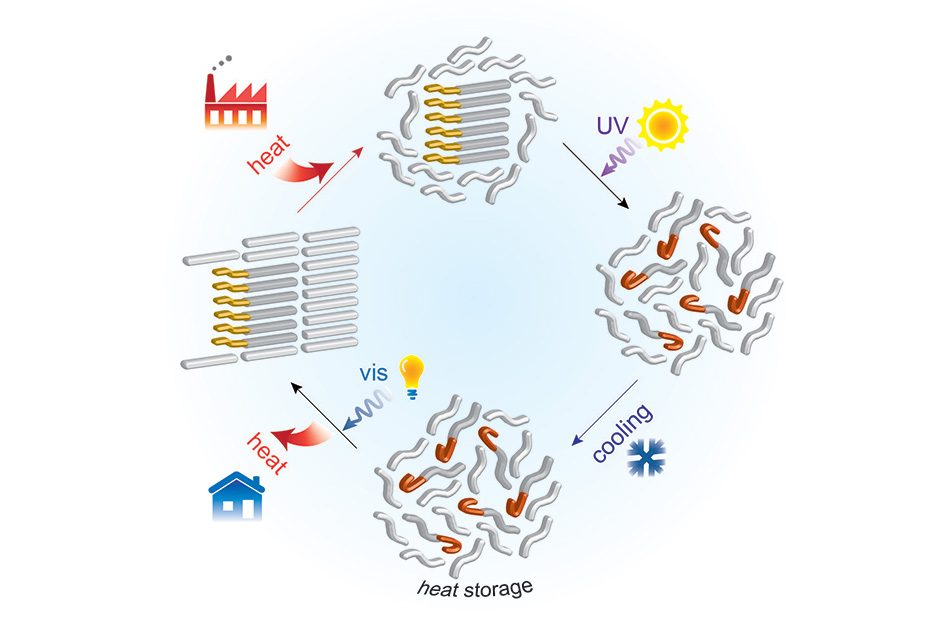Researchers from The Massachusetts Institute of Technology (MIT) have developed a chemical composite that will allow users to store heat during the day and release it when needed.
The “thermal battery”, reported in journal Nature Communications, would be of particular use in developing nations, where sunlight can be converted to power during the day and released at night.
The project could act as an alternative to traditional fuel, such as wood or dung, which is difficult to collect and store.
MIT’s storage system takes advantage of “latent heat”: the extra energy needed to change a substance’s state from solid to liquid without changing its temperature. The idea is to create molecular “switches” that change shape in response to light.

When integrated into the battery, they are able to store latent, or “phase-change”, energy well below the melting point of the original material for 10 hours or longer.
Grace Han, a postdoctoral student who worked on the project, said: “What we are doing technically, is installing a new energy barrier, so the stored heat cannot be released immediately.
“The availability of waste heat is widespread, from industrial processes, to solar heat, and even the heat coming out of vehicles, and it’s usually just wasted.”
Images courtesy of MIT/Melanie Gonick






